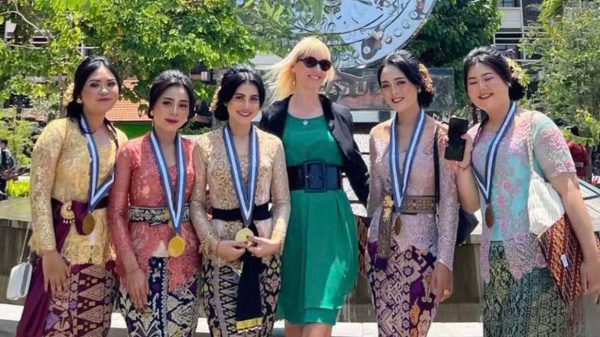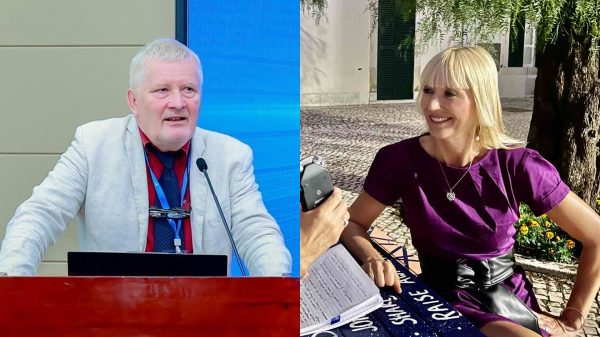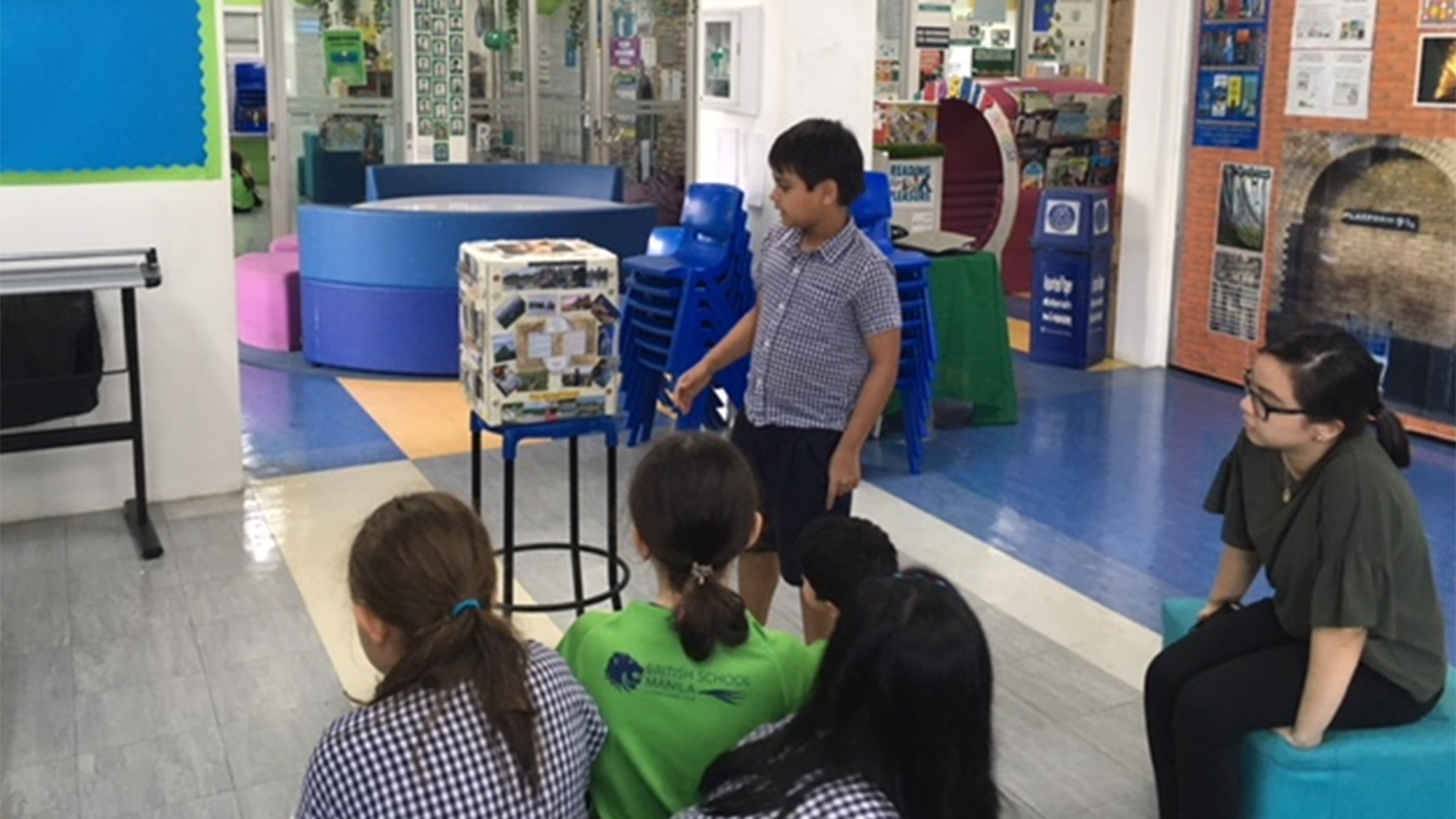
16.11.18
Building Relationship and Intercultural Understanding Through Exploring Our Personal Narratives
By Glenn Hardy
Dear Colleagues,I am delighted to add this blog to our HLD website, provided by the colleagues of the British School Manila – written in English and translated into Tagalog. They adapted my Autobiographical Approach to the needs of their school. My development of this initiative was originally guided by the following questions:
- How does one structure the use of autobiographical approaches, which bring relevance to all in the classroom and engagement with prior experience, without intimidation?
- How can this work take every child along the path of resilience and affirmation?
- How do we provide opportunities for children to tell their own narratives which will challenge stereotypes imposed by media or even curriculum?
At BSM the guiding question was:
Do we as an international school fully embrace the 40+ nationalities we have at the British School Manila?
This blog outlines an excellent example of the ways in which we hope that our HLD suggestions can be adapted and used in different contexts. My model for this initiative is outlined in the chapter available on the link below and I would be delighted to work with other international and mainstream schools on modelling, adapting and implementing this initiative. Anybody interested, feel free to get in touch on: dina@healthylinguisticdiet.com
For my chapter: In search of high level learner engagement: Autobiographical approaches with children and adults please click here (see pages 63-72.)
Well done to all children and adults who participated!
Dina Mehmedbegovic
“You can’t get to the content if the relationship and the social-emotional well-being piece is not being attended to first.” UCLA 1997 Study – the influence of relationships in a classroom
“It is hard to argue we are teaching the whole child when students leave their culture at the door. “ Cummins 2001
The school year began by setting the community tone we have built at BSM. It was a hearty Filipino welcome to all of the BSM family, with a huge welcome to our new students. Teachers sang the classic Sister Sledge song We are Family as the finale, substituting “I’ve got all my sisters with me” with “I’ve got all my students with me.” Our community and our partnerships are our strength and we want everyone on the learning journey together. Our vision and mission states, we value our family atmosphere and the sense of community that we foster. However, prior to the new school year, we had a question:
Do we as an international school fully embrace the 40+ nationalities we have at the British School Manila?
Our students would probably answer: ‘Not as well as we could.’
With student wellbeing and the launch of the ‘Student Well-Being Framework’ at the forefront of our thinking, we set out to address this. Dr Dina Mehmedbegovic introduced us to the Autobiographical Approach at the Council of International Schools Symposium on Intercultural Learning at the Hong Kong Conference in March 2018. This provided us with a platform to further build our community.
Our approach was to ask each child, from our three year olds to our fourteen year olds, to prepare and deliver their own personal narrative to an audience composed of their peers. This was seen as a beginning of our journey to understanding the cultures of all of our students, respecting their diversity and finding connections between them. Investing time in exploring identities in this way offers an affirmative mirror and a sense of self worth to the student. Students also want to know about their teachers – “Tell more stories about yourself,” was part of the feedback we received last year – so our teachers began the whole process through modelling, telling their stories. Collaborative classroom and teachers modelling the process on their own narratives was also a key feature of Dina’s approach. This laid the foundation for the supportive community familiarity that aids learning. As John Hattie says-: “A positive, caring, respectful environment is a prior condition to learning.” This approach fosters that type of environment.
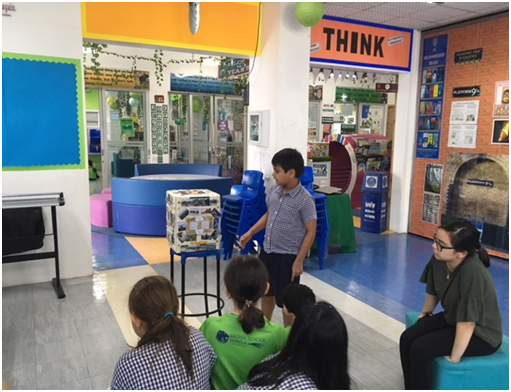
In that first week alongside the launch of the Autobiographical Approach, we also introduced our Well-Being Framework. This was followed a few weeks later by our annual Well-Being Week. Having spent a considerable amount of time in preparation, the key event was the opportunity for students to tell their stories, their personal narrative. Stories were being told all week and, across the school, there was evident pride and a greater sense of belonging for our children. The process of delivering their stories provided the opportunity for the positive self-affirmation that helps build a community. Students worked on their presentation in small groups and then presented in front of peers. For our senior students however, the audience also included parents. They shared their presentations and having heard fellow classmates elaborate on special things in their lives, they asked lots of great questions. It was clear from the attentive listening and enthusiastic follow up that children were interested and empathetic with their peers’ narratives. The questions asked and the resultant discussion clearly developed deeper intercultural understanding.
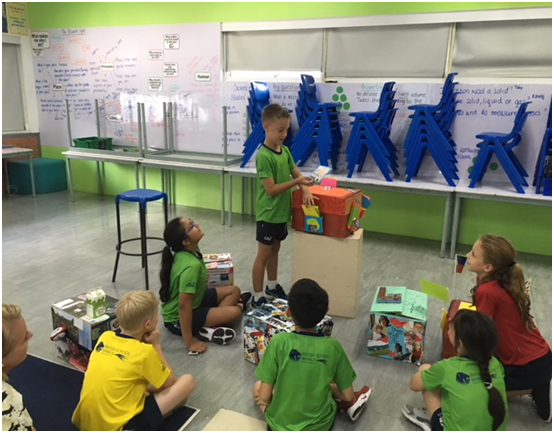
From a well-being perspective the goal of developing a positive self-image was achieved. In addition the development of an awareness of one’s own identity sits at the centre of a child’s own journey as a global citizen. This is the foundation that is reinforced by a supportive classroom culture and deeper and richer relationships. The autobiographical approach hit all of these targets and has been a significant part of meeting these goals.
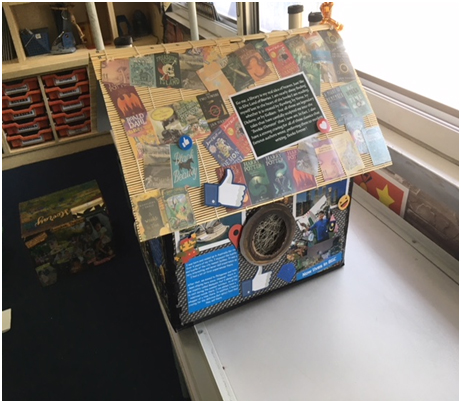
This was a cross generational project with parents and grandparents involved in prompting and promoting some of the wonderful family stories. The time invested in research about themselves and their families and sharing this in a public forum was one that not only delivered pleasure to the audience, but to the storyteller/curator as well. Telling these personal stories clearly built on the children’s own self worth and as Hope Denton said -:
“It has helped boost my confidence.”
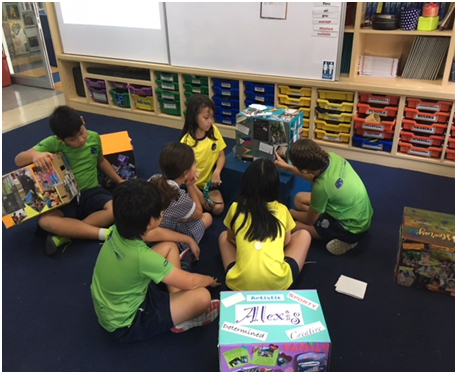
Sharing these personal narratives fosters greater empathy for others and emphasises the celebration of diversity. Reflecting on this Chelsea Chang realises -:
“that each family has their own roots and each family is unique but there are also similarities….It is important that we respect each other.”
Agneya in year 5 says:
“I have learnt that we all come from varied backgrounds. Still, we are like flowers in a bouquet.”
He followed this up with a telling statement about personal connection that this process made him more aware of:
“My research has made me understand that it is not ‘what’ we have in our lives but ‘who’ we have in our lives that counts.”
This was a sentiment that fellow year 5 students Fiona Chong and Lara Nath agreed with:
“The project has helped me understand that family and friends are more important than anything in the world.” Fiona
“My research has helped me to know myself better and my family.” Lara
Zander from year 6 sums up how the process has helped him view similarities and differences and reflect upon his own situation as an expatriate in an international school:
“I thought it was amazing to listen to all my peers’ presentations, as it was very good to see what I could relate to and what I couldn’t. One of the very important things that I could relate in almost everyone’s presentation is having to leave family behind to come to the Philippines.”
Put this all into the community melting pot of the British School Manila and you have significant contributions to the supportive learning environment with well being at its heart, something John Hattie regards as paramount:
“A positive, caring, respectful environment is a prior condition to learning.”
A wonderful project with huge benefits and impacts across the school.
About the author
Essex born and bred, attended Kings Road school where Geoff Hurst (still the only man ever to score a hat trick in a World Cup final) was a former pupil inspiring a lifelong passion for West Ham United. Attended KEGS school Chelmsford, the same school my dad went to, with the same woodwork teacher! Currently my 30th year of teaching, 24 of these in Manila since 1995 and travelled all over the wonderful Philippines and beyond. Previously taught in East London.
Graduate from Aston University in business, and PGCE from Brighton. Spent a year on a Fulbright Exchange programme in a school in San Diego.
BSM was a mere sapling when i joined and is now a flourishing oak tree (an exciting collaborative journey) with the community at its core and driven by the burning desire to develop it’s students into global citizens who want to make a difference.
Me, music in the soul, avid reader, traveller, runner and novice cook.
Twenty years a kalbo (Tagalog word for bald)!
